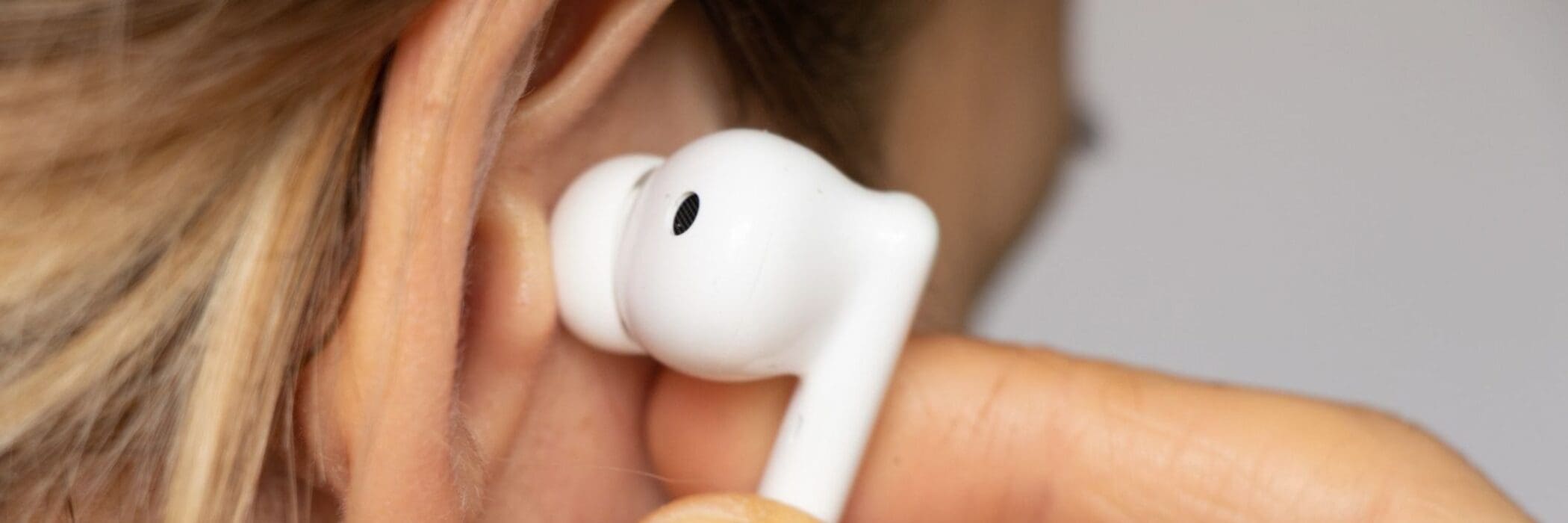Are My Air Pods Causing Me an Earache?
With wireless earphones becoming increasingly prevalent, there are some topics we need to address. While these devices offer convenience and high-quality sound, we must be conscious of how they may affect our ears. Let's explore the potential link between AirPods and earache, delve into effective earache treatments, and provide practical advice for preventing discomfort while enjoying your favourite tunes or podcasts.
Causes and Symptoms
Earaches can arise from various causes, ranging from ear infections and sinus issues to the prolonged use of in-ear headphones like AirPods. Common symptoms include a sharp, dull, or throbbing pain in the ear, a feeling of fullness, and sometimes even hearing loss. It's crucial to understand the underlying cause of your earache to determine the most effective treatment approach.
The AirPods-Earache Connection AirPods, and in-ear headphones in general, can contribute to earache in several ways.
- They can lead to earwax buildup by pushing it deeper into the ear canal, leading to blockages and discomfort.
- Prolonged usage at high volumes can strain the delicate structures within the ear, resulting in pain.
- If the earbuds do not fit properly, they can exert undue pressure on the ear canal, causing soreness and discomfort.
Earache Treatment
If you suspect your AirPods are causing or contributing to your earache, consider the following treatment and prevention strategies:
- Give Your Ears a Break
Regular breaks from your AirPods can prevent pressure buildup and give your ears time to recover. - Volume Control
Listening at lower volumes can significantly reduce the strain on your ears and prevent damage. - Proper Hygiene
Keeping your AirPods clean and ensuring your ears are free from excessive wax can prevent blockages and infections. - Seek Medical Advice
If your earache persists, it's crucial to consult an ear, nose, and throat (ENT) specialist. They can diagnose properly and recommend treatments such as ear drops, pain relief, or even professional ear cleaning.
Preventing Earache
Tips for Safe AirPods Use To enjoy your AirPods without compromising your ear health, consider the following tips:
- Choose the Right Fit
Ensure your AirPods fit comfortably in your ear. If necessary, consider aftermarket ear tips that better match your ear shape. - Limit Usage Time
Try to limit continuous use of AirPods to no more than an hour at a time, with breaks in between to allow your ears to rest. - Volume Awareness
Follow the 60/60 rule – listen at no more than 60% volume for no longer than 60 minutes at a time. - Keep It Clean
Regularly clean your AirPods and your ears to prevent wax buildup and infections.
Exploring Other Potential Causes of Earache
While AirPods might be a common suspect when you experience an earache, it's essential to consider that other factors could also contribute to your discomfort. Understanding these can help you take the appropriate action and find relief more effectively.
- Ear Infections (Otitis Media and Externa)
One of the most common causes of earache is an infection in the ear. Middle ear infections (otitis media) often occur due to colds or respiratory issues. In contrast, outer ear infections (otitis externa, also known as swimmer's ear) can occur after water gets trapped in the ear canal, leading to bacterial growth. Symptoms might include pain, a feeling of fullness, and sometimes a discharge. - Sinus Infections
Sinus infections can cause a deep, throbbing pain in your ear due to the interconnected nature of your sinus and ear canals. A sinus infection might be the culprit if you're also experiencing facial pain, congestion, or a runny nose. - Temporomandibular Joint Disorders (TMJ)
Problems with the jaw joint and surrounding muscles can cause ear pain, difficulty chewing, clicking sounds, and even a locked jaw. - Dental Issues
Sometimes, a problem with your teeth, gums, or mouth can cause pain in your ear. Cavities, impacted teeth, or gum disease can all lead to earache. - Eustachian Tube Dysfunction
This tube connects your middle ear to your throat. Dysfunction can lead to pressure and pain in the ear, especially during changes in altitude or air pressure. - Barotrauma
This can occur when there's a significant pressure difference between the inside and outside of the ear, often experienced during air travel or deep-sea diving. - Foreign Objects
Especially common in children, small objects can become lodged in the ear, causing pain and discomfort. - Excessive Earwax
While a little earwax is normal and healthy, too much can press against the eardrum or block the ear canal, leading to pain and hearing issues.
When to Seek Professional Help
While the above tips can significantly reduce the risk of earache, seeking professional help is important if you experience persistent pain, discharge, severe hearing loss, or if your symptoms rapidly worsen. An ENT specialist can provide a comprehensive examination, diagnose underlying conditions, and recommend a tailored earache treatment plan. Remember, your hearing health is invaluable – taking proactive steps to protect it will ensure you can enjoy your favourite audio for years.
If you're concerned about ear pain or any related symptoms, we encourage you to seek professional medical advice. Contact us to book an appointment and get your ear checked.

